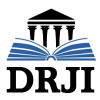Research Article
Book Review
Aim & Scope
AKAF is a refereed journal which brings together research on the contemporary politics and international relations of the Afrika, Türkiye, Mediterranean and the regions surrounding it.
The target audience of the journal is both national and international students, academics and people interested in the region. Thus, the journal seeks to act as a bridge between the relevant regional studies communities, and our coverage is inclusive of countries and populations in the broader European, African (North Africa and the Sahel), Middle Eastern (the Mashreq and the Gulf) and West Asian regions. Moreover, AKAF welcome contributions that examine the links between the Mediterranean area and the wider world. AKAF aims to be an internationally known, peer-reviewed field studies exchange that includes not only historical research, but also disciplinary and interdisciplinary research on current issues and debates. The journal seeks to shed light on the connectedness of polities and societies and thus takes an inter-disciplinary approach which, while generally focused on the disciplines of politics and international relations, is inclusive where appropriate of economics, political economy, human geography, sociology and anthropology. AKAF is affiliated with Ankara Hacı Bayram Veli University Mediterranean Basin and African Civilizations Research and Application Center.
AKAF journal accepts articles and book reviews in the fields of social sciences, humanities and public policies that focus on the global change and development dynamics of Mediterranean and African nations, societies, cultures and diasporas, including Turkey. The scope of AKAF is understood not only as those countries whose borders are partially or wholly defined by the sea itself, but as a space that spans the continents of Europe, Africa and Asia. The articles included in the journal are based on original research. The journal also publishes comparative scientific studies that address global perspectives across countries. Some focus on individual states, others on the relationships between them, on the international organizations which facilitate or complicate such relationships, or on themes and issues that are common to some or all.
Author Guidelines
1. The papers shall be prepared in “.doc or .docx” format of Microsoft Office Word (2010 and later) program; they shall be written in Times New Roman font. The default settings of the program shall be used in the page format and qualities, and they shall not be changed. (If the default settings have been changed, the page format shall be in A4 format and 2.5-cm space shall be left on all sides of the page.) Automatic formats or formulations (automatic content, automatic references, automatic chapter title/subtitle, or numbering), if any, shall be cleaned by all means. Page number shall not be included.
2. Title: It shall be reflective of the content of the paper and written in 12-point bold capital letters. It shall not exceed 12 words.
3. Should be anonymous and any information regarding author's identity should not be seen on the submitted paper.
4. Abstract: It shall take place at the beginning of the study; it shall be written in 10-point; it shall consist of a minimum of 100 and a maximum of 200 words, describing the whole study concisely. At least three at most five keywords shall be written one line below the abstract. Under the Main title (English or Turkish), abstract, and keywords there should be a secondary language (English or Turkish) title, abstract, and keywords.
5. The text of the study shall be written in 11-point Times New Roman font, and the paragraphs shall not be aligned on the left.
6. The paper is limited to 5000-7000 words, including Abstract and Bibliography.
7. The parts that need stressing within the text shall be provided “within quotation marks”, and quotations within the text shall be written in italic letters. The quotation marks and italic letters shall not be used together in quotations. The quotations that exceed 40 words shall be provided with a 1-cm indent on the left one space under the paragraph. Bold characters shall not be used unless necessary.
8. For articles written in Turkish, a 500-word extended abstract in English or French that includes the purpose, scope, method, findings, and results will be added at the bottom of the page in the section after the footnote.
9. The form declaring "No Conflict of Interest", which has a template on the system, will be filled out, For papers requiring ethical committee approval, documents regarding it will be submitted, and a "Plagiarism Report (max. %20)" will be uploaded to the system together with them.10. Citation: Only for compulsory explanations shall a footnote be used, and the other citations shall be indicated within the text. While making a reference within the text, it should be given in parenthesis as follows: (Surname of the author, Publication year of the reference: Page number). For example: (Orta, 1959: 76)
- If the author’s work predates the surname law, then the name of the author shall be used. For example: (Ziya Gökalp, 2018: 195)
- If a citation is made from more than one reference, a semi-colon shall be used between them. For example: (Polat, 2007: 194; Köksal, 2005: 87)
- To cite from the references with two authors, a hyphen shall be used between them. For example: (Koraş-Baykoca, 2000: 211)
- To cite from the references with more than two authors, the abbreviation (vd.) shall be used after the surname of the second author. Example: (Kutlar vd., 2012: 99)
- To cite from more than one work of the same year by the same writer, the publication year shall be followed by a slash and the number 1, 2, 3, and so on. Example: (Bilgegil, 1981/1), (Bilgegil, 1981/2)
- If the cited work consists of more than one volume, such as an encyclopedia, the volume number shall be indicated after the colon and followed by the page number. Example: (Köprülü, 1967: 5/213)
- If a manuscript is used as a reference, the abbreviation (yz.) shall be used after the name of the author. If necessary, the page number shall be given after the colon. The full colophon shall be given in the bibliography. Example: (Nef’î yz.: 45b)
- To show the archive documents as a reference, they shall be given as abbreviated within the text, and their full information shall be given in the bibliography. Example: (BOA Mühimme 15: 25)
- If a citation is made in the footnotes, the same rules shall be followed for them, too. Example: Bu konuda geniş bilgi için bkz. Levend, 1984: 189-207; Dilçin, 1983: 296; Kut, 2000: 87-93.
- If the name of the author is provided just before the quotation within the text, then just the publication year of the work shall be given and followed by a colon and page number. Example: Aktaş (2013: 69), bu hususu...
- To cite from the secondary works, the first/primary work shall also be indicated. Example: Süleyman Nazif (1925: 40, Bilgegil 1979: 27’den)
- Personal interviews shall be indicated with surname and date within the text, and they shall also be provided in the bibliography.
- For the Web addresses, the date of accessing the source shall be indicated in a parentheses. Example: http://www.tdk.gov.tr/index.php?option=com_bts (Erişim tarihi: 20.06.2017) This information shall also be given in the bibliography.
11. Bibliography: All the references shall be aligned according to the surname of the author at the end of the text and regarding the works predating the Surname Law, the name of the author shall be considered. (Alignment: justified text - 10 points, Hanging: 1 cm)
- To use more than one work by the same author in the bibliography, the alignment shall be made from the oldest to the nearest one.
- To give a work in a bibliography, the following order shall be followed with the first letter of every word as capitalized: Surname, First letter of the name. (Publication year). Title of the work in italics. Publication city: Publication house. Example: Dursun, Y. (2014). Oyunun Ontolojisi. Ankara: Doğu Batı Yayınları.
- To give articles, presentations and encyclopaedia items: Author's surname, name, publication date shall be written without putting a comma between the author's name. The date shall be (in parentheses), the title of the article / paper / encyclopedia article ("in quotation marks”), the title of the periodical / proceedings book / encyclopedia shall be italicized; if known, the volume of the work shall be provided with the letter (C), and the issue number shall be in parenthesis (S), and the page number shall be given after the issue number as (s.). For the published presentations, the date of the organization of such meetings as symposium, congress, etc. shall be provided together with the publication year of the proceedings book.
Example for articles:
LEVEND, Agâh Sırrı (1965), “Lâmiî’nin Ferhad u Şirin’i”, Türk Dili Araştırmaları Yıllığı Belleten 1964, s. 85-126.
Example for presentation papers:
KOZ, M. Sabri (2004), “Belli Mahlaslar Üzerinden Şiir Söyleme Geleneği ve Türkiye’de Yazılan Alevi-Bektaşi Cönk ve Mecmualarındaki Hatâî Mahlaslı Şiirler”, I. Uluslararası Şah İsmail Hatâyî Sempozyumu Bildirileri, 9-10-11 Ekim 2003, Haz.: Gülağ Öz, ATO Yayını, Ankara, s. 184-217.
Example for encyclopedia papers:
KÖYMEN, M. Altay (1983), “Turan, Osman”, Türk Ansiklopedisi, C. 32, MEB Yayını, Ankara, s. 2.
- For manuscripts, if the author of the manuscript is known, the author's name should be written first, followed by the abbreviation "manuscript" (yz.) in parentheses, then the title of the work (italicized), the library, collection and number where it is located, and - if necessary - the page numbers.
Example for manuscripts:
Mecmua-i Eş’âr (yz), Süleymaniye Kütüphanesi, Fatih, Nu. 5335.
Âlî b. Mustafa (yz), Nasîhatü’s-selâtîn, Ali Emiri Millet Kütüphanesi, Şer’iyye, Nu. 611.
12. Article Submission and Tracking: The submission of papers and process of evaluation shall be carried out through the DergiPark system.
You can download the copyright form from here.
Ethical Principles and Publication Policy
The Journal of Mediterranean Basin and African Civilisations follows the publication ethics standards published by the Committee on Publication Ethics (COPE), Directory of Open Access Journals (DOAJ), Open Access Scholarly Publishers Association (OASPA), and World Association of Medical Editors (WAME). COPE Publication Ethics Guidelines, "Code Of Conduct And Best Practice Guidelines For Journal Editors" and "Principles of Transparency and Best Practice in Scholarly Publishing" have been adopted by the journal editorial board.
The operation of the journal is transparent and subject to predetermined procedures.
The Journal of Mediterranean Basin and African Civilizations (AKAF), the scientific publication of Ankara Hacı Bayram Veli University Mediterranean Basin and African Civilizations Application and Research Center, started its publication life as an international e-journal in 2019. The Journal of Mediterranean and African Civilizations, which has historical and cultural relations with Turkey, includes original scientific studies at national and international levels on the language, history, literature, art, and culture of Mediterranean and African countries.
While research and research-based studies from all disciplines that can be evaluated in the context of social and human sciences on the Mediterranean Basin and African civilizations are evaluated; Turkish, and English articles, translations, reviews, compilations, and book introductions from the fields of language, literature, translation, history, folklore, sociology, psychology, philosophy, anthropology, archaeology, art history, etc. and the relations of these fields with other human sciences are included.
The journal is published twice a year at the end of June and December or the latest in the first week of the following month. The system is always open for article acceptance. The article acceptance process can be accessed through the Dergipark system, where relevant departments and individuals can receive information at any time and at any stage.
There is no fee for submissions to the Journal of Mediterranean Basin and African Civilizations, and articles are published through the DergiPark system with an open-access policy. The language of the articles submitted to the journal can be Turkish and English. You can download the copyright form from here.
The author is obliged to obtain the plagiarism report of the article and upload it to the system as an additional file. In studies with 20% or more similarity, the editorial board has the right to correct or reject according to the content of the similarity. The similarity rate of the article should not exceed 20%. Plagiarized articles will be returned. The responsibility for this belongs to the author.
Individuals who did not contribute directly to the content academically and scientifically in the creation of the work are not listed as authors. The order of authors' names reflects the joint decision of the authors. All authors must indicate the author ranking on the Copyright Agreement Form. After the form is filled in and signed, a digital copy must be uploaded to the system at the application submission stage.
For translated works, written permission for publication must be obtained from the author or the person or institution holding the right to publish, and this permission document must be attached to the application document.
All individuals who did not meet the criteria for authorship but contributed to the study (those who provided technical support, helped with the writing or just provided general support, financial and material support) are listed in the "acknowledgments/information" section.
Authors declare any financial relationships, conflicts of interest, and competition of interest that have the potential to influence the results of the research or the scientific evaluation.
If an author identifies a significant error or inaccuracy in a published article, he/she has the responsibility to immediately contact and cooperate with the editor for correction or retraction of such inaccuracies.
Authors must be able to demonstrate that they have the rights to use the data used, the necessary permissions for the research/analyses, or that the consent of the subjects of the experiment has been obtained.
Authors cannot have their work in the submission process of more than one journal at the same time. Each submission can be initiated following the completion of the previous submission.
It cannot be proposed to change the author's responsibilities (such as adding an author, changing the author order, or removing an author) of a study whose evaluation process has started.
The fact that the submitted articles are derived from a thesis or presented as a paper at a congress, symposium, or meeting is not an obstacle to publication. For article submissions derived from such events and studies, it should be conveyed as a note to the editor which event the study is derived from. This should be indicated as a footnote under the article.
Submissions submitted at least 30 days (1 month) before the publication of the next issue may be considered in the next issue depending on the journal's publication availability.
The scientific, content, linguistic, and legal responsibility of the articles published in the journal belongs to the authors.
Editors evaluate articles independently of the ethnicity, gender, nationality, religious beliefs, and political philosophy of the authors.
Each article has an editor and co-editor, who are also visible to the authors through the Dergipark system. The distribution of tasks is made according to the expertise of the editors and co-editors and this distribution is predetermined. It is possible to make a distribution other than this rule for reasons such as workload and leave of absence.
The editors evaluate the articles submitted to the journal in terms of quality, content, and contribution to the field and decide whether the article should be included in the publication process. At this stage, the article may be rejected without going through the process.
Co-editors check whether the article files are complete and complete and whether the articles comply with the journal's spelling rules; they ensure that the authors make the necessary arrangements.
Co-editors direct the articles whose preliminary review is completed to the relevant field editor for referee assignments.
Co-editors communicate with the authors and ensure that the process progresses quickly by providing the necessary information and reminders to the editors.
After the initial evaluation by the journal editorial office, the articles are sent for double-blind peer review by the editors in a fair manner. Articles that are deemed suitable for evaluation are sent to two national/international referees for evaluation.
Editors do not allow conflicts of interest between authors, editors, and referees. If the peer review is not completed in a reasonable time, the editors may contact the referee and request that the process be accelerated or appoint a new referee.
Editors monitor the performance of the referees they appoint in terms of content, speed, and style.
At the end of the referee review, the editors evaluate the referee reports. The Board of Editors meets and decides whether to accept the article, send it to a third referee or reject it. The reason for the rejection decision and the referee reports are sent to the author.
All information regarding the articles submitted during this process is kept confidential until the article is published.
Price Policy
Mediterranean Basin and African Civilizations is a free Journal. No fee is charged under any circumstances for the works submitted for publication.
Indexes
Journal Boards
Editor-in-Chief

Assoc. Prof. Dr. Ayşe TOMAT YILMAZ was born in 1988 in Aydın, Turkey. She completed her primary and secondary education in this city. In 2010, she graduated second in her class from the Department of French Language and Literature at Istanbul University, Faculty of Letters. In the same year, she began working as a Research Assistant in the Department of French Language and Literature at Çankırı Karatekin University, Faculty of Letters. Between 2011 and 2012, she worked as a Research Assistant in the Department of French Language and Literature at Atatürk University, Faculty of Letters, where she also completed her master’s degree. From 2012 to 2017, she served as a Research Assistant in the Department of French Language and Literature at Ankara University, Faculty of Languages, History and Geography, where she obtained her PhD.
Between 2019 and 2021, she taught undergraduate and graduate courses as a Lecturer (Doctor) at École Normale Supérieure, Lyon 2 University, and Jean Monnet University under the Turkish Republic Lyon Educational Attaché Office. From 2020 to 2023, she served as the Education Attaché at the Consulate General of the Republic of Türkiye in Lyon. Since 2024, she has been continuing her academic career as a faculty member in the Department of French Language and Literature, Division of Western Languages and Literatures at Ankara Hacı Bayram Veli University.
During her undergraduate studies, she attended Paris Descartes University through the Erasmus Program, and during her doctoral studies, she conducted research on her dissertation at Paris X Nanterre University through the Erasmus Internship Mobility program. Between 2019 and 2021, she completed her postdoctoral research at École Normale Supérieure.
Her academic interests and research areas include French literature, North Africa, imagology, the image of the Turk, migration and migration sociology, colonialism, women’s issues, and Turkish language education in France.
Fluent in French and English, Tomat Yılmaz is married.
Editorial Assistants

Ayşegül Demir is a Turkish academic in the Department of English Literature at Munzur University in Turkiye. She did her PhD on Scottish Makar Kathleen Jamie and has recently studied the minstrelsy tradition in Scotland and the translation of Scottish ballads into Turkish at the University of Edinburgh as a postdoctoral visitor. She is the recipient of the 2018 Saltire Scholarship and the 2022 Edwin Morgan Translation Fellowship for the Scottish Literature Module at Scottish Universities International Summer School (SUISS). She is a co-founder of Modernism & Postmodernism Studies Network in Türkiye and a rotating editor of JOMOPS. She has published widely on Scottish literature with a specific focus on minstrelsy tradition, border ballads, makars, and Turkish–Scottish Oral Literature. “Scotland Hymns for His Identity: The National Anthem in Progress'' is the title of her most recent publication in Routledge's Global Perspectives on Nationalism: Political and Literary Discourses Series (2022)
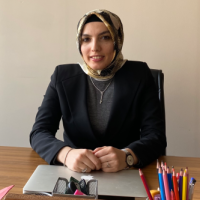

Language Manuscripts Editor (English)

Ayşegül Demir is a Turkish academic in the Department of English Literature at Munzur University in Turkiye. She did her PhD on Scottish Makar Kathleen Jamie and has recently studied the minstrelsy tradition in Scotland and the translation of Scottish ballads into Turkish at the University of Edinburgh as a postdoctoral visitor. She is the recipient of the 2018 Saltire Scholarship and the 2022 Edwin Morgan Translation Fellowship for the Scottish Literature Module at Scottish Universities International Summer School (SUISS). She is a co-founder of Modernism & Postmodernism Studies Network in Türkiye and a rotating editor of JOMOPS. She has published widely on Scottish literature with a specific focus on minstrelsy tradition, border ballads, makars, and Turkish–Scottish Oral Literature. “Scotland Hymns for His Identity: The National Anthem in Progress'' is the title of her most recent publication in Routledge's Global Perspectives on Nationalism: Political and Literary Discourses Series (2022)
Lecturer Şule Çınar Yağcı completed the French Teaching undergraduate program at Istanbul University in 2014. She earned her master’s degree with a thesis in the Department of French Education at the Istanbul University Institute of Educational Sciences in 2018 and is currently pursuing her doctoral studies at the Gazi University Institute of Educational Sciences.
Since 2021, she has been serving as a lecturer at Zonguldak Bülent Ecevit University's School of Foreign Languages. Adopting innovative approaches in teaching French, Şule Çınar Yağcı focuses her studies on AI-supported language teaching, digital storytelling design, and the integration of educational technologies into foreign language education.
Her academic publications include book chapters and articles on AI-supported French education, digital storytelling design, and the flipped classroom model. She has presented papers on the use of artificial intelligence in foreign language teaching at international conferences and symposiums.
During the fall and spring semesters, Şule Çınar Yağcı teaches French courses at the Faculty of Tourism. She also contributes to the preparation of IAESTE exam materials and serves in the French sections of these exams.
Field Editor (Language and Literature Editor)

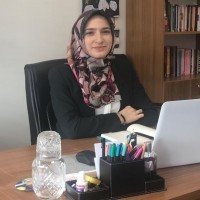
My research focuses on translation and cultural studies. I am interested in the theory of comics, literature, terminology, semiotics, ecology, and new media studies.
Field Editor (Asian-African Studies)
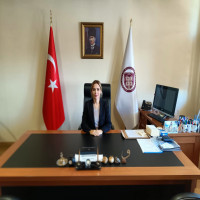
Field Editor (History)

 Web
Web
Field/Area Editor (Sociology)
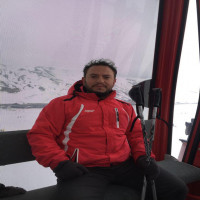
Layout Editor
Editorial Board

Prof. Dr. Fatma Ahsen TURAN
A.Ü. Dil Tarih ve Coğrafya Fakültesi Türk Dili ve Edebiyatı bölümünden 1984 yılında mezun oldu. G. Ü. Sosyal Bilimler Enstitüsü’nde 1989 yılında yüksek lisansını, 1995 yılında doktorasını tamamladı. 1985-1991 yılları arasında Ankara Üniversitesinde okutman kadrosunda Türk Dili dersi verdi. 1991 yılından 2018 yılına kadar Gazi Üniversitesi Fen-Edebiyat Fakültesi TDE Bölümü, Halk Edebiyatı anabilim dalında görev yaptı. 1999 yılında (Haziran-Eylül) Manchester Üniversitesinde (UMIST), 2004’te (Ocak-Mayıs) Michigan State Üniversitesinde dil eğitimi aldı ve araştırmalar yaptı. 2007 yılında DAAD Alman Hükümeti burs ödülü ile Freie Üniversitesi Türkoloji enstitüsünde proje çalışmasını yürüttü. 2008’de Hindistan’da Jamia Millia Islamia Üniversitesi’nde Türk Dili Kürsüsünü kurarak 2008-2009 yıllarında Türkçe dersleri verdi. 2012 yılında Halk Kültürü Araştırma Kurumu tarafından verilen Türk Halk Kültürüne hizmet ödülünü aldı. Hâlen Ankara Hacı Bayram Veli Üniversitesinde Prof. Dr. Öğretim üyesi olarak görev yapmaktadır. Alanıyla ilgili çok sayıda kitap ve makalesi bulunmaktadır. Türk Radyo ve Televizyon Kurumu’na Türk kültürü hakkında radyo programları yazdı. Bu programlar; İspanyolca, Almanca, Romence, Fransızca, Arapça, Peştuca, Malayca gibi dillere çevrildi.

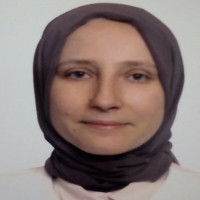
Hatice Uğur graduated from Boğaziçi University, Department of History in 2000. In 2003, she completed her master’s degree in history at Boğaziçi University with a thesis titled “Understanding Afrika-yi Osmani in the Late Ottoman Period: The Case of Zanzibar”, which was published as “A Sultanate in Ottoman Africa: Zanzibar” (Kure Publications, 2005). She completed her doctoral studies at the Institute of African Studies, Department of History, Leipzig University with her thesis titled “East Africa's Entangled Worlds in Ottoman Sources, 1879-1915”. Uğur has published several studies on Ottoman Africa and the interactions between the Ottomans, East Africa and the Western Indian Ocean regions in the 19th century. She is currently a faculty member at Marmara University, Institute of Middle East and Islamic Countries. She will also be a visiting researcher at the Department of African Studies at Humboldt University, during 2024-2025, where she will study the Afro-Ottoman legacy in late Ottoman and early Republican societies and examine Africans in the post-imperial Ottoman Empire within the broader concept of global African diaspora.
Doç. Dr. Erkan Karagöz, Muğla’da doğdu (1982). İlk, orta ve lise eğitimini Muğla’da tamamladı. Gazi Üniversitesi Edebiyat Fakültesi Çağdaş Türk Lehçeleri ve Edebiyatları/Türkoloji bölümünden mezun olduktan sonra (2005 Haziran) aynı bölümde araştırma görevlisi kadrosunda çalışmaya başladı (2005 Aralık). Fakültedeki işiyle eş zamanlı olarak aynı üniversite çatısı altında faaliyet gösteren Gazi TÖMER’de (Türkçe Öğretim Merkezi) görevlendirme ile yabancı öğrencilere Türkçe öğretti (2008-2010). Gazi Üniversitesi Sosyal Bilimler Enstitüsü Çağdaş Türk Lehçeleri/Türkoloji Anabilim Dalında Türk Destanlarında Su Altı Dünyası isimli teziyle yüksek lisansını (2009), Tatar-Başkurt Sihirli Masalları Üzerine Karşılaştırmalı Motif Çalışması: Çeviri – Motif Tespiti (Motif-Index of Folk-Literature’a Göre) – Motif Dizini isimli teziyle doktorasını tamamladı (2016). Tatar Çocuk Oyunları – Hareketli Oyunlar – İnceleme | Sözlük isimli kitabını doçentlik çalışması olarak hazırlayan Karagöz, Üniversitelerarası Kurul Başkanlığından doçentlik unvanı aldı (2023 Ocak).
Gazi Üniversitesinin ikiye bölünmesi neticesinde Edebiyat Fakültesinin, yeni kurulan Ankara Hacı Bayram Veli Üniversitesinin yapısında yer almasıyla Karagöz, kurum değişikliği yapmış oldu (2018 Mayıs). Karagöz, İdil-Ural (Tatar ve Başkurt) Türklerinin folklor, dil ve edebiyatları üzerine akademik çalışmalarını yeni kurumunun çatısı altında devam ederken, Yunus Emre Enstitüsü tarafından Cezayir Demokratik Halk Cumhuriyeti’nin Cezayir 2 Abou El Kacem Saadallah Üniversitesi Yabancı Diller Fakültesi Türkoloji Bölümüne öğretim elemanı olarak görevlendirildi (2019-2020). Cezayir dönüşü kendi kurumunda akademik çalışmalarını sürdüren Karagöz, bölümüne doçent olarak atandı (2023 Ağustos). MEB (Millî Eğitim Bakanlığı) tarafından yapılan görevlendirme ile Karagöz, hâlihazırda Uluslararası Saraybosna Üniversitesi Eğitim Fakültesi Türk Dili ve Edebiyatı Öğretmenliği bölümünde görev yapmaktadır (2023 Eylül).
Lisans, yüksek lisans ve doktora eğitimini Gazi Üniversitesinde tamamlayan Karagöz, ayrıca Rusya Federasyonu-Tataristan Cumhuriyeti’nin Tisbi Üniversitesi ile Gazi Üniversitesi arasında yapılan ikili protokol çerçevesinde Kazan’da yaz okulu eğitim programına katıldı (2011). Gazi Üniversitesi tarafından Amerika Birleşik Devletleri’nde bulunan Georgia State Üniversitesine eğitim için gönderildi (2012). YÖK (Yüksek Öğretim Kurumu) tarafından organize edilen “Mevlana Öğrenci Değişim Programı” kapsamında doktora eğitiminin bir bölümünü Rusya Federasyonu-Tataristan Cumhuriyeti’nde Kazan Federal Üniversitesi Tatar Filolojisi Bölümünde geçirdi (2015).
Doç. Dr. Erkan Karagöz, TKAE (Türk Kültürünü Araştırma Enstitüsü) tarafından “Hizmet Ödülü”ne (2011), UAESEB (Uluslararası Avrasya Eğitim Sendikaları Birliği) tarafından “Ahmet Yesevi Halk Kültürü Genç Araştırmacı Ödülü” (2016) ile Millî Mücadele’nin 100. Yılı Anısına verilen “Zafertepe Bilim Ödülü”ne (2022) ve kendi kurumu Hacı Bayram Veli Üniversitesi tarafından da “Uluslararası Yayın Teşvik Ödülü”ne (2020) layık görülmüştür.


Advisory Board
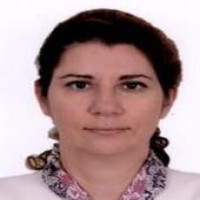


Emekli Büyükelçi
İstanbul Ticaret Üniversitesi Öğretim Üyesi
1964 yılında Samsun ili Vezirköprü ilçesinde doğdu. Babasının imamlık mesleği yapması sebebiyle ailesi 1968’da Merzifon’a yerleşti. İlkokula Aksungur, Bahçecik ve Buğdaylı köylerinde devam edip Taşova’nın Gürsu köyünde 1975 yılında tamamladı. Aynı yıl kayıt olduğu Merzifon İmam-Hatip Ortaokulu 1978 yılında ve sonrasında lise kısmını 1982 yılında bitirdi. Ankara Üniversitesi İlahiyat Fakültesini kazanarak 1987 yılında da buradan mezun olduktan sonra Türkiye Diyanet Vakfı bursu ile Fransa’da Afrika üzerine uzmanlaşmak üzere gönderildi. Paris’te Denis Diderot Üniversitesinde 1991 yılında Yüksek Lisansını, 1996 yılında doktorasını tamamladı. Türkiye Diyanet Vakfı’nın İstanbul ili Üsküdar ilçesindeki İslam Araştırmaları Merkezinde 2006 yılına kadar araştırmacı olarak çalıştı. 2002 yılında Doçent oldu. 2006 yılında İstanbul Üniversitesi İlahiyat Fakültesinde öğretim üyesi görevine başladı. 2008-2011 yılları arasında Afrika konularında Başbakanlık danışmanı olarak görev yaptı. 2009 yılında Profesör unvanı aldı. 2011 yılında İstanbul Medeniyet Üniversitesi Siyasal Bilgiler Fakültesinde başladığı öğretim görevliliği sırasında Afrika ülkelerinden Çad Cumhuriyeti’ne 2012 yılında büyükelçi olarak tayin edildi. 2015 yılında üniversitedeki görevine döndü ve 4 yıl Siyasal Bilgiler Fakültesi Dekanlığı yaptı. 2020 yılında ikinci bu defa Senegal Cumhuriyeti’ne büyükelçi tayin edildi ve 2023 yılında bu görevini yürüttü. Her iki ülkeden devlet nişanı bulunmaktadır. 2024 yılı Haziran ayından itibaren İstanbul Ticaret Üniversitesi İnsan ve Toplum Bilimleri Fakültesi Siyaset Bilimi ve Uluslararası İlişkiler bölümünde öğretim görevlisi olarak çalışmaktadır. Arapça, Fransızca ve İngilizce bilmektedir ve 3 çocuğu bulunmaktadır. Afrika konularında yazılmış kitapları, çeşitli dergilerde makaleleri ve gazetelerde yazıları yayınlanmıştır. Halen Afrika Araştırmacıları Derneği başkanlığını yapmaktadır.
Kitaplarından bazıları:
Geçmişten Günümüze Afrika
Osmanlı Afrika İlişkileri
İki Din Arasında Fransa
İslam Dünyası
Medeniyetlerin Güç Kaynağı Afrika: Binbir Hazine
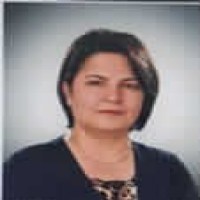
BÜYÜKELÇİ (E) NUMAN HAZAR
Tarsus'ta doğdu. 1966 yılında Ankara Üniversitesi Siyasal Bilgiler Fakültesi'nin Diplomasi ve Dış Münasebetler Bölümü'nden mezun oldu. 1967 yılında Dışişleri Bakanlığı'nda çalışmaya başladıktan sonra yurtdışında çeşitli diplomatik görevlerde bulundu: Ottawa, Kanada'da İkinci Kâtip; Lefkoşa, Kıbrıs'ta Başkâtip; iki dönem (altı yılı aşkın bir süre) Washington D.C., ABD'de Müsteşar ve Birinci Müsteşar; Yeni Delhi, Hindistan'da Misyon Şefi Yardımcısı; Bonn, Federal Almanya'da Elçi-Müsteşar; ve Ankara'da Türkiye Cumhuriyeti Cumhurbaşkanlığı Genel Sekreteri Özel Kalem Müdürü ve ardından Cumhurbaşkanı Özel Kalem Müdür vekili olarak görev almasının yanı sıra, Dışişleri Bakanlığında Kültürel İlişkiler, Siyaset Planlama ve Avrupa Konseyi Dairelerinde çalışmış, Afrika, Doğu Asya ve Pasifik/İslam İşbirliği Teşkilatından sorumlu İkili Siyasi İşler Genel Müdürü olarak görev yapmıştır.
Lagos, Nijerya'da Büyükelçi, Strazburg'daki Avrupa Konseyi'nde Büyükelçi/Daimi Temsilci ve sonrasında da Paris'teki Birleşmiş Milletler Eğitim, Bilim ve Kültür Teşkilatı UNESCO’da Büyükelçi/Daimi Temsilci olarak görev yapmıştır. Millî Savunma Bakanı'na Büyükelçi/Dış Politika Danışmanı görevinde bulunduktan sonra Dışişleri Bakanlığı Teftiş Kurulu Başkanı olarak atanmıştır. 2010 yılında emekli olduktan sonra 2011 yılında Türkiye tarafından merkezi Tahran’da bulunan Ekonomik İşbirliği Teşkilatı'nın (ECO) yeniden yapılandırılmasıyla görevli Akil Adamlar Grubu’nun (Eminent Persons Group) (EPG) Türk Üyesi olarak görevlendirilmiş ve EPG Başkanı seçilmiştir.
Dışişleri Bakanlığı Akademisinde Fransızca ve İngilizce Diplomasi, Müzakere Teknikleri ve Diplomatik Yazışma kursları da vermektedir.
Ankara Üniversitesi Siyasal Bilgiler Fakültesi (SBF) ve TOBB-Ekonomi ve Teknoloji Üniversitesinde (ETÜ) İngilizce Diplomatik Yazışma dersleri vermiştir.
Ankara Dış Politika Enstitüsünde yönetim kurulu üyeliği yapmıştır. Halen İstanbul Maltepe Üniversitesi İnsan Hakları Merkezi Yönetim Kurulu üyesidir.
Farklı uluslararası konularda çeşitli ülkelerde yayınlanan Türkçe, İngilizce, Fransızca ve Almanca dillerindeki yetmiş dolayında makalelerinin ve dört monografinin yanı sıra, Türkçe olarak kaleme aldığı “Küreselleşme Sürecinde Afrika ve Türkiye-Afrika İlişkileri”, “Uluslararası Politika ve Uygarlıklar”, ''Bilim ve Teknoloji Diplomasisi'', ''İnsan Hakları ve Diplomasi'', ‘’Türkiye-Afrika İlişkileri, Türkiye’nin Dost Kıtaya Açılım Stratejisi’’, ‘’Sovyet Tehdidinin Gölgesinde Türk Dış Politikası’’ , ‘’Dış Politika Anıları, Güncemden Notlar, 1967-2018’’, ‘’Uygarlıklar Çatışması, Ermeniler ve Dondurulmuş Uluslararası Sorunlar’’, ‘’Afrika’da Emperyalizm ve Soykırım’’ ve ‘’Ermeni Görüşleri ile Batum ve Gümrü Antlaşmaları’’ başlıklı 10 kitabın da yazarıdır.
Prof. Dr. Enver ARPA lisans (1988) derecesini Ankara Üniversitesinden, yüksek lisans (1994) derecesini Ürdün Üniversitesinden almış, doktora derecesini (2001) Ankara Üniversitesinde tamamlamıştır. Akademik hayatından önce farklı kamu kurumlarında yurt içi ve yurt dışı idari görevlerde bulunan Enver ARPA Ankara Sosyal Bilimler Üniversitesine 2017 yılı Ağustos ayında katılmıştır. Yurt dışı görevleri, TİKA Ortadoğu ve Afrika Dairesi Başkanlığı ve Diyanet İşleri Başkanlığı dış ilişkiler müşavirliği gibi görevleri süresince uluslararası tecrübe edindi ve bu tecrübesini yazarak okuyucuya aktardı. “Afrika Satrancında Sudan” “Afrika Seyahatnamesi”, “Hayata Dair – Sanal Dünya Yorumları” gibi kitaplarının yanısıra İslam Dünyası ve Afrika kıtasıyla ilgili çeşitli çalışmalarda bulundu. Özellikle İslam dünyasında yaşanmakta olan şiddet olaylarıyla ilgili araştırma ve çalışmalarını halen sürdürmektedir.

Copy Editor

Our journal publishes academic studies covering a broad spectrum of topics related to the Mediterranean Basin and Africa, including history, culture, politics, economics, literature, sociology, and international relations. Academics, researchers, and specialists wishing to publish their original research in these fields are invited to submit their manuscripts.
The manuscript evaluation process is conducted under the principles of scientific research ethics and follows a blind peer review system. Articles submitted for publication must be prepared in accordance with the journal’s author guidelines.
